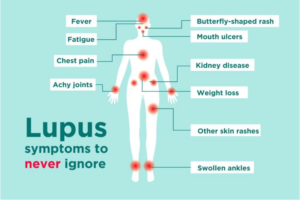Have you ever had severe joint pain and wondered, “do I have Gout?” Now, you ponder what is the next step? This blog will cover the basics of Gout.
What is Gout?
It is a type of arthritis which can cause sudden, severe attacks of pain, redness, and tenderness in joints, most often affecting the big toe. It is caused by high uric acid in blood.
How is Gout diagnosed?
First of all, you should see an expert rheumatologist who can distinguish between Gout and other types of arthritis. Testing includes detailed history, careful physical exam, blood work, x-rays and possibly joint fluid analysis.
What can you do to avoid or lessen the Gouty attacks?
For Gout flares, NSAIDs (such as ibuprofen), colchicine and oral steroids can stop the attack in its tracks. For long term management, there are many medication options which are chosen based on your symptoms, blood work and medical history.
Are there any lifestyle or dietary changes which can help with Gout?
Chronic dietary and lifestyle changes are recommended to lessen the amount and number of medications. It’s important to decrease intake of foods which can ultimately cause high uric acid in blood such as certain seafood and organ meats.
What complications can occur with unmanaged Gout?
High uric acid levels in the blood can contribute to metabolic syndrome which can increase the risk of heart disease, diabetes and stroke.
Getting your Gout under control is not just to avoid flares but also to live without other chronic medical conditions.

Embracing Integrative Care: A Vital Approach to Managing Autoimmune Disorders
Living with an autoimmune disorder can be a challenging journey, one filled with uncertainty and varying degrees of discomfort. From rheumatoid arthritis and lupus to multiple sclerosis and Crohn’s disease, these conditions not only impact physical health but can also affect emotional well-being and overall quality of life.

Beyond Medications: Diet, Meditation, Exercise, and Supplements
Our immune system protects our body from bacteria and viruses. Autoimmune conditions arise from dysfunctional immune system which can mistakenly attack its own tissues and organs. Although the exact cause of what causes the immune system to go haywire remains unknown, there are combination of factors which may play a role.

Understanding Hashimoto’s Disease: Frequently Asked Questions and How Direct Access Rheumatology Can Help
Living with Inflammatory Bowel Disease (IBD) can present numerous challenges, both physically and emotionally. The impact of IBD extends beyond the digestive system, often affecting various aspects of daily life. At Direct Access Rheumatology, we understand the complexities of managing IBD, and we’re here to offer support and guidance to individuals in the Las Vegas area.

Gout
Have you ever had severe joint pain and wondered, “do I have Gout?” Now, you ponder what is the next step? This blog will cover the basics of Gout.

Systemic Lupus Erythematosus (SLE): FAQs and Integrative Care Strategies
Systemic Lupus Erythematosus (SLE), commonly known as lupus, is a multifaceted autoimmune disorder affecting various organs and systems within the body. Understanding this condition is pivotal for those living with it and their support networks. Let’s explore some common queries about lupus and delve into integrative care methods for holistic management.

Sjögren’s Syndrome: FAQs and Integrative Care Insights
Systemic Lupus Erythematosus (SLE), commonly known as lupus, is a multifaceted autoimmune disorder affecting various organs and systems within the body. Understanding this condition is pivotal for those living with it and their support networks. Let’s explore some common queries about lupus and delve into integrative care methods for holistic management.



